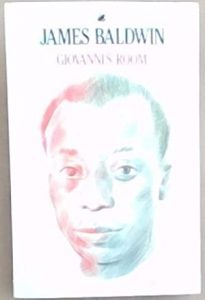I read James Baldwin’s Another Country around 1968, when it was only six years old and therefore quite a recent book. Baldwin lived on until 1987.
I remember it vividly for two reasons. First, post-Lady Chatterley, I was fairly accustomed to graphic literary (not always) sex between men and women. But Another Country was the first account I’d ever read of sexual love between men and it was quite an eye opener. I’d led a pretty sheltered life and had never knowingly had a conversation with a gay man. And my parents were of their generation – homophobes by today’s standards.
The other reason I recall it with such clarity is that I was sitting reading Another Country in the family home waiting for my beloved fiancé to arrive. When he did and I went off to find coffee he picked it up, flicked through it and said: “I don’t think this is the sort of book you should be reading”. To say I was astounded would be an understatement. When I had picked myself up off the floor, I said firmly: “If you and I are going to spend the rest of our lives together, let’s get one thing straight now. No one tells me what I’m allowed to read”. That sorted it and I had no more of that sort of thing for the next 50 years.
Thinking about all this recently reminded me that I had not read Baldwin’s other novels – and that was what led me to Giovanni’s Room (1956) and its elegant descriptive prose: “Flakes of snow have drifted across the shawl which covers her head; and hang on her eyelashes and on the wisps of back and white hair not covered by the shawl” or “The table was loaded with yellowing newspapers and empty bottles and it held a single brown and wrinkled potato in which even the sprouting eyes were rotten.”
Narrator David is an American in Paris – it would be nice to hear some of this novel read aloud against George Gershwin’s piece of that name. I wonder if anyone has ever done it? In part it’s a reflection of Baldwin’s nine year stay in that city from 1948 – we certainly get a very clear picture of the ambience of post-war Paris.
David’s girl friend Hella has gone travelling elsewhere in Europe, mostly Spain, and he is at a loose end. He falls in with a group of gay men and meets and falls in love with a glitteringly attractive Italian barman named Giovanni. For several months they live together in the titular Giovanni’s room. Baldwin is very good indeed at the physical ache David feels for Giovanni even when, eventually, he leaves him because he thinks he should marry Hella and Giovanni becomes very self-absorbed and manipulative. About half way though the novel the reader realises that a very tragic end is coming. David is narrating from the South of France. He is alone. Giovanni is … well, no spoilers. And Hella has seen the truth and gone home to America. David feels a wonderfully well observed mix of guilt, hatred, passion, longing and despair.
I learned something from this novel. I had no idea that sex between men was decriminalised in France in 1791 after the Revolution. It was socially frowned upon especially by the church but wasn’t a crime as it remained in Britain until 1967 and until various 20th century dates in US as each state gradually did the same. Thus David, in the early 1950s is not going to be arrested for his relationship with Giovanni as he would be in his own country. Italy, where Giovanni comes from, decriminalised it in 1890 and that surprised me too.
And that’s why David feels such a tug – what he wants to do is at variance with what, conditioned by social pressure, he thinks (and convinces himself for a while) that he ought to do. And the tension is very powerful.
Next week on Susan’s Bookshelves: The Cossacks by Leo Tolstoy
